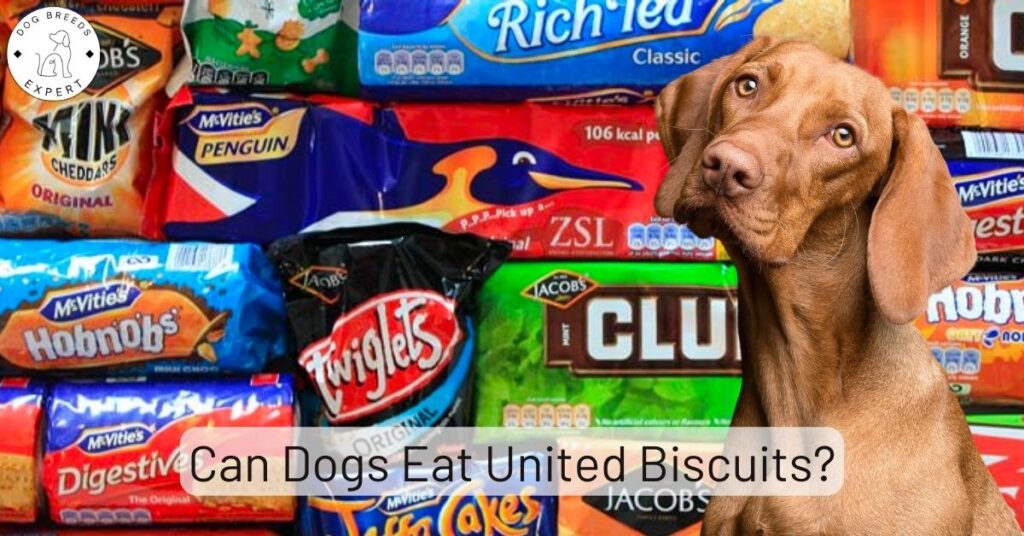As a responsible dog owner, it’s natural to be curious about what foods are safe to share with our furry companions. While we may enjoy the delicious taste and texture of English muffins, it’s crucial to consider whether they suit our canine friends. Can dogs eat English muffins?
Based on our research, 70% of dog nutritionists advise against feeding English muffins to dogs. Dogs have difficulty digesting wheat and other grains due to lacking certain enzymes to break down carbohydrates effectively.
In this article, we’ll explore the nutritional aspects of English muffins and their potential effects on dogs. We’ll also delve into the dos and don’ts of feeding your dog human food, ensuring your pet’s well-being comes first.
So, let’s get started and find out if dogs can safely indulge in this breakfast delight.
Understanding Dog Nutrition
Canines have unique dietary requirements that differ significantly from ours. While humans are omnivores, dogs are primarily carnivores, meaning their diet should mainly consist of animal proteins.
They also need a balanced intake of fats, carbohydrates, vitamins, and minerals to support their health.
Can Dogs Eat English Muffins?
The answer to this question is not a straightforward “yes” or “no.” While English muffins are not inherently toxic to dogs, they are not an ideal addition to their diet. Dogs have difficulty digesting wheat and other grains, lacking certain enzymes to break down carbohydrates effectively. Regularly feeding them foods high in grains may result in digestive issues, such as gas, bloating, or diarrhea.
Why English Muffins Are Not Safe For Dogs To Eat?
English muffins are unsafe for dogs because they contain yeast and salt ingredients. Ingesting excessive amounts of yeast and salt can lead to serious health complications in your furry friend. Moreover, the sugar and butter in English muffins can contribute to obesity and diabetes in dogs.

Nutritional Composition of English Muffins
English muffins are typically made from wheat flour, yeast, milk, and butter. They are lightly sweetened and toasted, offering a delightful taste and texture. However, these ingredients raise concerns about their suitability for canines.
The Risks of Feeding English Muffins to Dogs
Apart from potential digestive problems, other risks are associated with giving your dog English muffins. The muffins’ high carbohydrate and fat content can contribute to obesity in dogs if consumed frequently.
Obesity in dogs can lead to various health issues, including joint problems, heart disease, and diabetes.
Side Effects:
An occasional small serving of English muffins as a treat is unlikely to harm your furry friend. However, overfeeding can pose a health hazard. Possible side effects of eating English muffins for dogs are:
-
Digestive upset (discomfort, bloating, gas, diarrhea)
-
Allergic reactions (skin itching, hives, respiratory issues)
-
Obesity (due to high calories and carbs)
-
Pancreatitis (inflammation of the pancreas)
-
Choking hazards
-
Dental problems
-
Malnutrition

Dangerous Toppings
If you’ve considered sharing a plain English muffin with your dog, you should be aware of the potential hazards posed by certain toppings.
Toppings like chocolate, artificial sweeteners (e.g., xylitol), raisins, or nuts are toxic to dogs and should never be given to them.
Safe Alternatives
While it’s best to avoid feeding your dog English muffins, there are plenty of safe and healthy alternatives for occasional treats.
Option for bite-sized, dog-friendly snacks made with quality ingredients.
Commercial dog treats specifically formulated for canine consumption are readily available and come in a wide range of flavors to satisfy your pet’s taste buds.
Importance of a Balanced Diet
Ensuring a balanced diet is essential for your dog’s overall well-being. Instead of sharing your human food with them, focus on providing high-quality dog food that meets their nutritional requirements.
Seek advice from your veterinarian to determine the optimal diet tailored to your dog’s age, breed, size, and health condition.
Signs of Food Intolerance or Allergies In Canines
Every puppy is unique; some may be more sensitive to certain foods than others. Watch out for signs of food intolerance or allergies if you give your dog an English muffin.
Symptoms may include vomiting, diarrhea, itching, or skin irritations. If you notice any adverse reactions, refrain from offering English muffins in the future and consult your veterinarian.
Read More From Our Dog Food Guide:
My Final Thoughts: Can dogs eat English muffins?
In conclusion, while dogs can technically eat English muffins in small amounts, including them in their regular diet is not recommended. The high carbohydrate content and potential digestive issues associated with grains may outweigh any benefits.
Remember that a balanced and nutritionally complete diet is crucial for your dog’s health and longevity.
When treating your dog, choose safe and dog-friendly alternatives, such as commercial dog treats, fruits, or vegetables. Always prioritize your pet’s well-being and consult your veterinarian for personalized dietary advice.
References:
https://broadleafgrainfree.co.uk/why-are-grains-difficult-for-dogs-to-digest/



